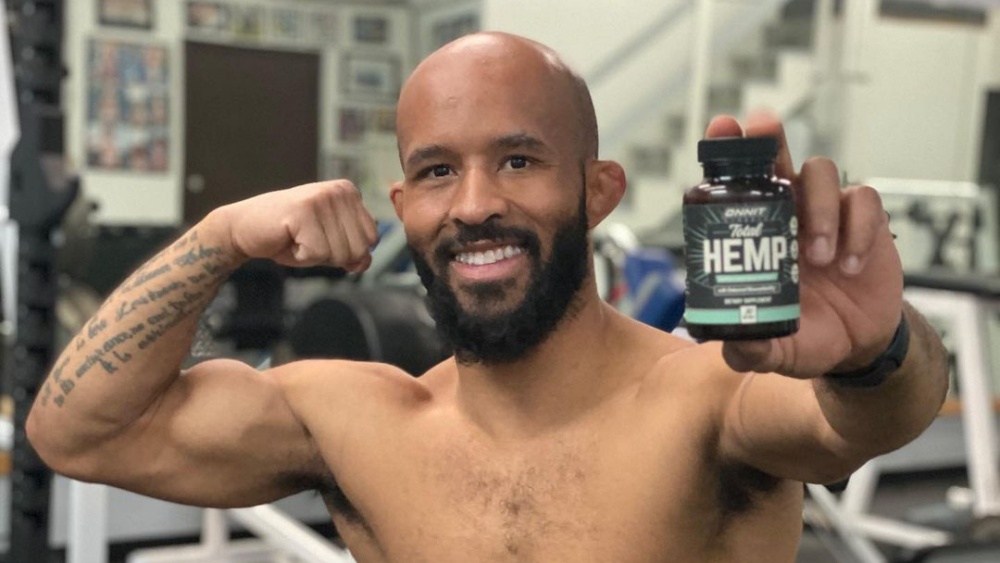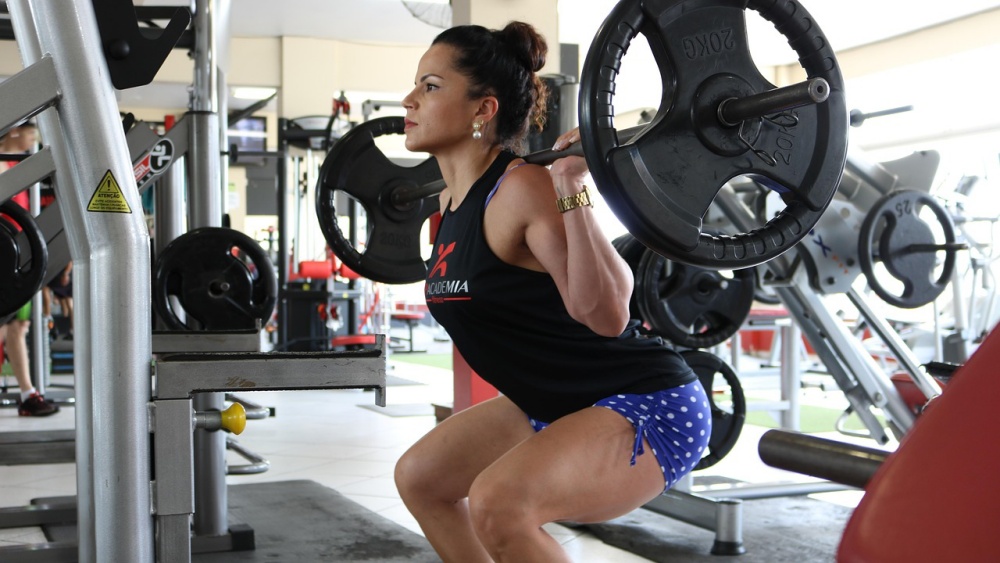Finding helpful information about gaining weight can be challenging since most fitness articles are geared toward people looking to lose weight. The small minority of people looking to gain weight often have to search the web tirelessly for helpful information while trying to navigate around all the myths and misconceptions out there.
If that’s you, today’s your lucky day. This article will examine some of the myths about gaining weight circulating the internet so you can be armed with the information you need to reach your weight gain goals.
14 Popular Myths And Misconceptions About Gaining Weight
There are many reasons why you might decide to gain weight. Your physician might recommend gaining some weight if you’re recovering from an illness that drained your body, you might be looking to bulk up for your next martial arts tournament, or you want a more balanced physique. Knowing the truth about these misconceptions will make your journey much more straightforward, regardless of your motivation.
Some of the most popular myths about gaining weight include:
1) Consuming More Protein Leads Will Make You Bigger
Protein is essential for muscle growth, but consuming it won’t automatically make you bigger. Two things are required for your muscles to grow: progressive overload to stimulate them beyond the normal levels of resistance they deal with and consuming more calories than your body needs daily.
Your muscles still need protein to repair your muscles from the tears caused during your workout, so aim to consume 1.2 to 1.5 grams of protein per kilogram of body weight. Ensure you consume enough carbohydrates so your body has a caloric surplus daily. Aim for 5 to 7 grams for each kilogram of body weight.
Remember that while protein helps build your muscles, carbohydrates provide the calories that power them.
2) It’s Okay To Eat Lots Of Junk Food To Gain Weight

Eating lots of junk food isn’t the way to go when trying to gain weight. These foods are loaded with calories, but they’re mostly empty. Junk foods typically don’t have any nutritional value and are often loaded with sugar or salt. These foods also tend to be highly processed, and they can lead to hormone imbalances.
Don’t get us wrong, consuming a bunch of donuts, chips, and sugary beverages will lead to weight gain, but it will be the unhealthy kind. Most of the extra calories will be stored around your midsection, increasing your risk of heart disease and diabetes.
Your bulking goal should be to consume a high-calorie, high-protein diet while regularly working out to ensure you gain muscle mass while limiting the amount of fat you add to your frame. Aim to gain weight slowly; instead of putting it on quickly, try to consume anywhere from 300 to 500 calories more than your daily caloric gain.
To keep your muscles in an anabolic state, divide your meals into five to six smaller meals and eat every three hours.
Examples of calorie-dense healthy foods that help reach a caloric surplus include:
- Greek yogurt
- Eggs
- Avocados
- Nuts/nut butter
- Full-fat dairy products
- Protein shakes
3) Artificial Sweeteners Are Better Than Sugar
Artificial sweeteners are touted as no-sugar, zero-calorie alternatives to sugar, but that doesn’t automatically mean they’re good for you. Research suggests that artificial sweeteners can increase sugar cravings, making it harder for you to resist unhealthy junk foods.
Other studies suggest that artificial sweeteners harm gut bacteria and increase your risk of health issues like diabetes and heart disease.
You’re better off consuming small quantities of regular sugar than gulping gallons of artificially sweetened beverages. The best zero-calorie, sugar-free drink is water.
4) Fatty Foods Make You Fat
Many people wrongly believe that all fatty foods are bad for them, but science disagrees with that misconception. Ironically, many people who try removing fat from their diets get fatter since low-fat diets are often rich in carbohydrates, raising insulin levels and promoting fat gain.
Healthy fats play many vital roles in the body, including helping the body absorb fat-soluble micronutrients and enhancing muscle protein synthesis. Fats also help regulate the production of hormones like testosterone, which is essential for muscle building.
Fats are the most calorie-dense foods, so adding some to your diet can help you reach a caloric surplus.
5) You Can’t Gain Weight If You Have A Fast Metabolism
Your metabolism affects how easily you can gain or lose weight, but that doesn’t change the formula for increasing muscle mass. You still have to consume more calories than your body uses daily to force your body to grow.
Regardless of how fast your metabolism is, gaining weight is simply a matter of figuring out your daily caloric needs and consuming about 300 to 500 more calories than you need daily.
The easiest way to reach a caloric surplus is to consume more calorie-dense foods and aim to eat about five times daily.
6) Avoid Cardio If You Want To Gain Weight
Cardiovascular exercises like running, cycling, or swimming are usually associated with weight loss, leading to a train of thought that suggests people seeking weight gain should avoid such activities.
While cardio exercises do help burn calories, which can lead to weight loss, they also help maintain cardiovascular health. You don’t have to give up on performing cardio exercises to reach a weight gain goal.
Balance is the key to preventing your cardio workouts from hindering weight gain. Adding moderate cardio to your workout routine to get bigger improves your heart health while allowing you to recover faster after strength training workouts.
You can also consider using fitness trackers to calculate how many calories you burn during your cardio workouts and factor this into your daily caloric intake.
7) Gaining Weight Will Ruin Your Figure

The myth that gaining weight will prevent you from reaching your desired figure isn’t true. Gaining weight doesn’t stop you from developing a toned appearance. Weight gain, particularly muscle mass, moves you closer to your ideal body type.
Muscles add shape and definition to your physique, making it more attractive. Gaining weight will help to build the body of your dreams as long as you combine a balanced diet with strength training.
8) You Don’t Need To Exercise To Gain Weight
While you technically don’t need to exercise to gain weight, given the many obese people who don’t exercise regularly, you need to work out to gain weight in the right places. Eating more than usual would only lead to weight gain around your midsection and other body parts that won’t look attractive.
Exercise, particularly strength training, is vital for increasing your muscle mass, which is the ideal type of weight gain. Aim to target each muscle in your body at least once a week. Work each muscle twice weekly for even better results. The ideal rep range for people looking to bulk up is between four and twelve.
9) Eating More And Exercising Are All You Need To Gain Weight
This misconception couldn’t be more wrong. While diet and exercise are the two most essential things you can do to gain weight, there are several other factors to consider, including how much physical activity you engage in daily, stress management, social lifestyle, and sleep quality.
Your muscles don’t grow bigger when you’re in the gym. The muscle-building process primarily occurs when your body is resting. Not getting enough quality sleep will undoubtedly impact your weight gain goals. Being sleep-deprived also makes it harder to stay disciplined with your diet, as it leads to sugar cravings.
Stress can throw your hormones off balance, so finding effective ways to manage stress will move you closer to your weight gain goals. Stress increases cortisol production, which decreases testosterone production. Cortisol also causes your body to store excess fat around your midsection.
Your lifestyle also impacts how easily you gain weight in multiple ways. For example, drinking alcohol almost every night would significantly slow down your progress and lead to more fat growth than muscle gain.
A well-rounded approach to weight gain involves a healthy diet, strength training, adequate sleep, stress management, and the right lifestyle choices.
10) You Need Supplements To Gain Weight

The supplement industry is booming with countless products that promise to help you gain weight quickly. While protein shakes and creatine supplements can be vital in your fitness journey, you don’t need them to increase your muscle mass.
The best sources of nutrients are the foods and beverages you consume. Your body tends to absorb more of these nutrients when consumed naturally.
When trying to gain weight, the main things you should consider are consuming more healthy calories than your body needs and following a strength and conditioning routine that stimulates your muscles to grow.
Supplements aren’t meant to replace eating healthy, nutrient-rich foods. Instead, use them to complement your diet for optimal results. For example, most of your protein should come from your meals, but protein shakes give you a more convenient way to quickly get protein in your system. Supplements aren’t essential for weight gain or loss but can make your journey easier.
11) You Can Go Back To Your Old Habits After Gaining Weight
Here’s another misconception that can lead to people losing all their muscle gains. Gaining weight requires you to eat more than you normally would, but that doesn’t mean you can return to your regular eating and exercise habits once you reach your goals.
Your muscles still need stimulation and nutrients to maintain their current size. Not getting enough exercise or nutrients can cause them to shrink.
Some modifications are okay once you reach your weight gain goal, but you shouldn’t make any drastic changes. For example, reducing your calorie intake for a while is okay when you reach your ideal weight so your body can burn off any excess fat accumulated along the way. You might lose some weight as you shred fat, but you’ll be much healthier. You can always bulk up some more once you lower your body fat percentage. Professionals like bodybuilders are constantly moving between the bulking and shredding phases.
The key to keeping the results of all your hard work in the gym is being disciplined with your nutrition and workouts.
12) Gaining Weight Should Be A Quick Process

In an age that prioritizes instant gratification, it’s easy to fall for the misconception that weight gain can be quick. When done correctly, increasing muscle mass is a slow process. Putting on lots of weight quickly often means you’ve gained lots of fat. Rapid weight gain can also lead to health problems like digestive issues.
Aim to gain around 0.25 to 1 kilogram of body weight each week. This approach gives your body more time to adjust to all the changes while limiting your fat gain. Taking a slow and steady approach to bulking also supports your overall health.
13) Carbohydrates Are The Enemy
Carbohydrates often get a bad rap when it comes to weight gain. Many people use carbs as an interchangeable word with junk food. However, carbohydrates are an essential macronutrient that powers your muscles and play a vital role in healthy weight gain.
Complex carbohydrates like vegetables, legumes, and whole grains provide the energy you need to power through your workouts. They also contain many nutrients and antioxidants your body needs, like fiber, which supports gut health.
Carbs should be a significant part of your diet when you’re looking to gain weight, but you should stick to nutrient-rich carbs like oatmeal and balance them out with healthy fats and protein.
14) Being Vegan Or Vegetarian Limits Your Muscle Growth
Being a vegetarian or vegan doesn’t mean you can gain muscle mass. There are many plant-based protein sources and vegan protein shakes, so your dietary choices won’t prevent you from gaining weight. Just make sure you’re getting enough protein for your body. Some of the best plant-based protein sources include seitan, tofu, lentils, and beans.
Gaining Weight Is Easy With The Right Approach
Once you’re armed with the correct information, adding muscle mass to your frame is easier than many think. Eat lots of nutrient-dense healthy foods, perform strength training exercises regularly, and be patient with your progress.
Refrain from obsessing over the number on the scale. Instead, focus on consistency with your diet and training, and the results will come.
You may also like:

















